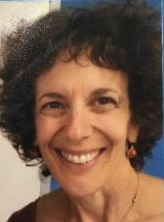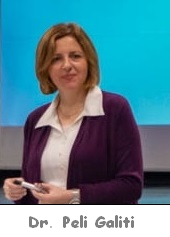Tagged: “Social Emotional Learning”
TEACHERS: GET TO THE HEART OF LEARNING
The International Forgiveness Institute (IFI) has a variety of curriculums available for all grades from pre-k through 12th grade. Our most recent one is, The Courage to Forgive: Educating Elementary School Children About Forgiveness..
- For the basic description of this curriculum, check out this link: The Courage to Forgive.
- For the complete 15-page introduction that explains more about forgiveness education, this specific curriculum, why it is needed, and the benefits of forgiveness education, check out this link: The Courage to Forgive Introduction.
- To learn more about the IFI’s full range of teacher resources, check out this link: Curriculum Guides.
New, Just Published Curriculum Guide – THE COURAGE TO FORGIVE: EDUCATING ELEMENTARY SCHOOL CHILDREN ABOUT FORGIVENESS
Grade school educators, counselors, and homeschooling parents now have a new resource available to help teach their 4th and 5th grade students (ages 9-12) about forgiveness. Serving either as a Social-Emotional Learning or a Character-Education curriculum, the focus is on what forgiveness is, is not, what forgiveness looks like, and the basic concepts associated with forgiveness, including kindness, empathy, perspective-taking, and healthy expression of anger.
The Courage to Forgive: Educating Elementary School Children About Forgiveness uses children’s literature and incorporates the latest social-emotional learning (SEL) and character education principles into its 16-lessons. Each lesson in the 64-page guide is approximately 45-minutes in length and lessons include a variety of activities for students to complete, group and individual discussion questions to reflect on and answer, and even an opportunity for students to write their own book about forgiveness. One life-long teacher was so impressed after previewing the guide that she called it her “character education handbook.”
This new curriculum includes the model of forgiveness developed by Dr. Robert Enright, as well as techniques honed by Dr. Suzanne Freedman during her 2015 research with 5th grade students in a racially-diverse Midwestern school. Selected children’s books, such as, The Forgiveness Garden by Lauren Thompson, Each Kindness by Jacqueline Woodson and Let’s Talk about Race by Julius Lester are used to teach and illustrate forgiveness and related concepts. Book summaries and online videos of the books are included with the curriculum guide.
As stated by Dr. Freedman in the introduction to the curriculum, “It is hard for students to forgive if they don’t know about forgiveness or see examples of it. The children’s literature used in this curriculum illustrates what forgiveness looks like, what’s involved in forgiving and the impact of forgiveness for both the characters who do the forgiving and those who receive it.
“Helping students develop empathy toward others is a key strategy not only in character-building but in bullying prevention and intervention,” according to Dr. Freedman. “It is critical that we help kids develop empathy early in their lives and this curriculum guide is a great way to do that. Plus, the short sessions using children’s literature are fun for the kids so they are eager to learn.”
Although this curriculum was written specifically with 4th and 5th grade students in mind, it can be used with older (middle school students) or younger students, since activities can be modified as necessary. Even adults will find the curriculum helpful in their understanding and practice of forgiveness.
“SEL programs are being recognized as an important part of the school curriculum for all students,” Dr. Freedman adds. “In this guide, SEL is incorporated with Forgiveness Education in order to teach students how to recognize and express anger and other emotions in a healthy way, understand the perspective of others, and recognize the humanity in all.”
The following quote illustrates how one 5th grade student benefited from learning about forgiveness:
“I like forgiveness because it helps me learn how to forgive people. Before forgiveness I was mean and rude to people- I learned to forgive people. I had a lot of anger before but since you came here- I learned to control my anger and calm myself down!”
For more information about the curriculum, read the full 15-page introduction to the guide.
For more information about the research behind this curriculum guide, read The Impact of Using Children’s Literature to Teach 5th Graders about Forgiveness.
Free Forgiveness Education Webinar on Feb. 4 Featuring Dr. Robert Enright and Dr. Peli Galiti
FORGIVENESS:
PRACTICAL APPLICATIONS OF A TIMELESS VIRTUE
Live Internet Event
Thursday, February 4, 2021
7:00 p.m. EET (Eastern European Time)
MEETING TIME CONVERSIONS
U.S. – EST – Noon
U.S. – CST – 11:00 a.m.
U.S. – MST – 10:00 a.m.
U.S. – PST – 9:00 a.m.
GMT – 5:00 p.m.
REGISTRATION REQUIRED NO LATER THAN TUESDAY, FEBRUARY 2, 2021
The program for this one-of-a-kind free webinar includes presentations by:
- Robert Enright, Professor of Educational Psychology at the University of Wisconsin-Madison and founder of the International Forgiveness Institute (IFI) – “The healing value of forgiveness from the Aristotelian philosophical perspective.”
- Peli Galiti, Researcher in the Department of Educational Psychology at the University of Wisconsin-Madison and Director of the IFI’s Greek Forgiveness Education Program – “The Way to Forgiveness: From Theory to Practice.”
- Konstantinos Kornarakis, Professor of Christian Ethics – Bioethics in the Department of Theology of the Theological School of the National and Kapodistrian University of Athens – “Functional and dysfunctional aspects of forgiveness in texts of the ascetic Christian literature.”
- Konstantinos Bikos, Professor of School Pedagogy and New Technologies in the Department of Philosophy and Pedagogy, the Aristotle University of Thessaloniki – “Socio-emotional and moral development of the Greek student: the contribution of education to forgiveness.”
The webinar has been organized by Dr. Peli Galiti, Ph.D., M.Ed., and her associates at the University of Athens (where she was previously a lecturer in the University’s School of Education) and the Aristotle University of Thessaloniki (A.U.Th.). For the past eight years, Dr. Galiti has been conducting Forgiveness Education training workshops for Greek teachers and for the past five years that training has been in collaboration with A.U.Th. During those eight years she has trained more than 600 teachers to use the Forgiveness Education Program which is now being taught to more than 6,000 Greek students.
The author of two books, Dr. Galiti has received funding for her work in Greece from the prestigious Stavros Niarchos Foundation, established by Stavros Spyros Niarchos, an Athens native who assembled and operated the largest shipping fleet in the world before his death in 1996. A descriptive video (4 min. 11 sec.) of the Greek Forgiveness Program is available at this YouTube link or you can visit the Greek Forgiveness Education website.
The International Forgiveness Institute’s widely-acclaimed Forgiveness Education Program was developed by Dr. Enright along with collaborating curriculum experts and experienced teachers. Using children’s story books (many by Dr. Seuss) and Social Emotional Learning (SEL) techniques, the Program teaches students about the five moral qualities most important to forgiving another person–inherent worth, moral love, kindness, respect and generosity. The Program is now being used in more than 30 countries around the world.
Additional Webinar Information: 1) Dr. Enright’s opening presentation will be delivered in English while the other three presentations will be in Greek with no English translation or subtitles; 2) The event will take place online on the ZOOM platform for free; 3) Registration must be completed by Tuesday, Feb. 2; and, 4) The link to the meeting will be sent to registered participants by e-mail on the eve of the event; and, 5) More than 700 people have already registered for the webinar.
Registration Form Translations:
1. Last name:
2. First name:
3. Email address:
4. Questions(s) you would like to ask the speakers about forgiveness (optional):
5. Which speaker(s) should answer your question (optional):
6. I accept the Privacy Policy:
7. I would like to receive more information about similar events (I Agree/Disagree):
The Impact of Using Children’s Literature to Teach 5th Graders about Forgiveness

Dr. Suzanne Freedman
A Guest Blog by
Suzanne Freedman, Ph.D.
University of Northern Iowa
“How children navigate their emotional world is critical to their life long success.”
Susan David, Emotional Agility
Recent statistics illustrate an increase in elementary school children dying by suicide (Dillard, 2018). Three nine-year old children took their own lives this past year and bullying was related to all three deaths. Hate incidents at school are increasing at alarming rates although most incidents of hate are not reported. Along with increases in suicide and suicide ideation, anxiety and depression in youth are on the rise (Dillard, 2018).
Helping students develop empathy toward others is a key strategy in bullying prevention and intervention and according to a recent NY Times article (Brody, 2018), it is critical that we help kids develop empathy early in their lives. Social emotional learning (SEL) programs that include a focus on empathy and regulation of emotions are being recognized as an important part of the school curriculum for all students (Zakrzeski, 2014) and based on recent statistics, there is a need for more SEL programs in schools today.
According to Cook-Deegan (2018), social-emotional learning teaches the key attitudes and skills necessary for understanding and managing emotions, listening, feeling and showing empathy for others, and making thoughtful, responsible decisions. Research illustrates that including social-emotional learning (SEL) in the curriculum is good for both students and their teachers (Zakrzeski, 2014).
Forgiveness education, with its focus on recognizing and validating students’ anger as well as teaching students to express emotions in a healthy way, understand the perspective of others, recognize the humanity in all, and increase empathy and compassion, is one form of social-emotional learning that is currently being investigated by researchers (Enright., Knutson, Holter., Baskin, & Knutson, 2007; Freedman, 2018).
The forgiveness education research project described here was based on a quasi-experimental pre-test post-test design with two classes of 5th grade elementary school students attending a low-income school in a Midwestern community. There were approximately 25 ten and eleven-year old students in each class representing a diverse group of races and ethnicities.
The forgiveness education curriculum consisted of 10 weekly lessons of 30 minutes in duration with two days of pre-testing and two days of post-testing. Although all students received the forgiveness education, only the students who returned signed consent forms from their parents completed pre and post-tests (30 out of 50 students total – 16 students in one class and 14 students in another class).
The forgiveness education was taught  by the researcher (and author of this blog) and occurred in each classroom on different days of the week. The same weekly lesson was taught in each classroom and the forgiveness education curriculum was based on Enright’s four-phase, 20-unit process model. Selected children’s literature was used to teach and illustrate forgiveness and related concepts to the students.
by the researcher (and author of this blog) and occurred in each classroom on different days of the week. The same weekly lesson was taught in each classroom and the forgiveness education curriculum was based on Enright’s four-phase, 20-unit process model. Selected children’s literature was used to teach and illustrate forgiveness and related concepts to the students.
Certain principles from the chapter, “Helping Children and Adolescents Forgive”, in Enright’s (2001) book, Forgiveness is a Choice, guided the education. First, the idea that it is always the child’s choice to forgive was highlighted. Second, the curriculum was developed with the understanding that children may not understand forgiveness in the same was as adults. Third, the point that forgiving and reconciling are not the same thing was emphasized. Fourth, the rationale for this education and research project was based on the realization that if children are going to learn about forgiveness they need to be educated about it and know that it exists as an option as well as the knowledge that children learn more deeply when challenged and encouraged.
After the project, quantitative results illustrated that students increased significantly in their forgiveness toward a specific offender from pre-test to post-test. Students reported being hurt by friends, siblings, mothers and other students. Students also showed significant increases in their knowledge of forgiveness from pre-test to post-test.
Qualitative results illustrated that students both enjoyed and benefited from the forgiveness education curriculum. Specifically, when asked about what they learned and enjoyed about the forgiveness education, 14 students reported that the forgiveness education “helped them learn to forgive someone”.
Specific statements included, “I like forgiveness because in the future we will meet other people that we do not like but we still need to forgive them”; “Forgiveness has helped me forgive people I couldn’t forgive in a long time”, “It helps me forgive people when they make bad choices”; and “I liked learning because I have learned how to forgive someone like I am trying to forgive someone right now”.
Ten students reported that learning about forgiveness helped them know more about “being nice and showing kindness to others”. Specific comments included, “Even if people you know are mean to you, you can still be nice to them. Don’t be mean to others”; “It helped me be nicer to my brother and friends”; and “You could always give a person that is mean to you a second chance because maybe the person that is being mean is having a bad day or got in an argument with their best friend”.
Nine students also reported that they “learned more about bullying” from the forgiveness education. Specific comments included, “Some bullies get bullied so they are letting their anger out on somebody else”; “People are just hurt inside when they bully”; Even though somebody is being mean to you, you could still forgive them”; and “When you have empathy you want to know how they feel and then you can put your feet in their shoes, and if you are getting bullied you can turn them into a friend by knowing how they feel”.
Seven students reported that they “learned ways to calm down and let go of anger as a result of the forgiveness education. Six students stated that the forgiveness education taught them that “we are all the same underneath”. Another six students reported that they “learned about empathy”. Additional responses by more than one student included, “Forgiving is hard”; “Forgiveness is a choice”; “You don’t need an apology”; Forgiving takes time”; “Forgive but not forget”; and “Revenge is not part of forgiveness”.
This study illustrates the potential of forgiveness education to improve elementary school students’ psychological well-being and interpersonal relations as well as the importance of including forgiveness education in the school curriculum. Students who learn how to forgive and decrease their anger in healthy ways will be less likely to be involved in bullying and other violent acts (Freedman, 2018). This research is encouraging and needs to be replicated with additional populations of children and adolescents.





